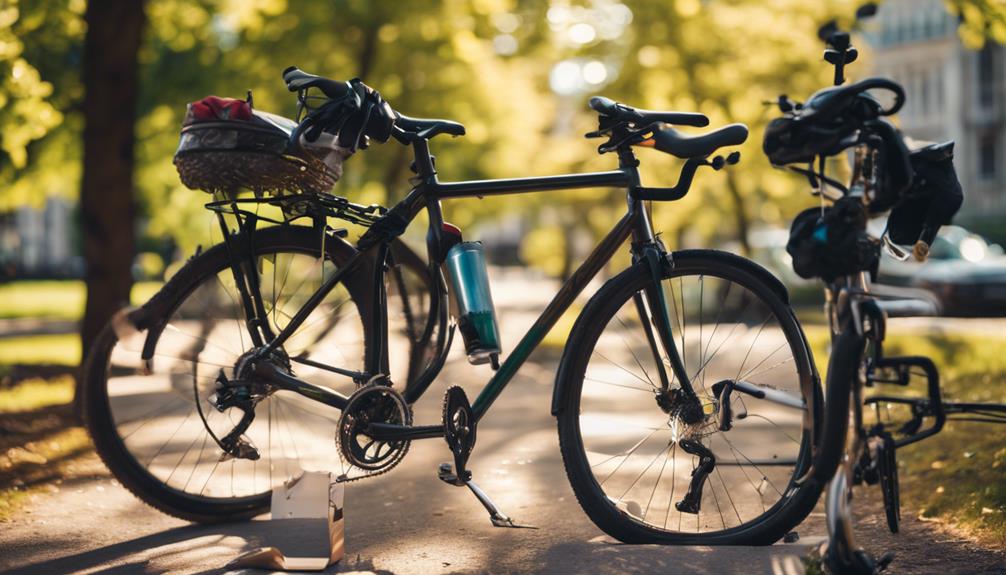Marin Bikes is a renowned brand in the cycling industry, celebrated for its innovative designs and high-quality bicycles. Founded in 1986 in Marin County, California, the brand has evolved significantly over the years, expanding its manufacturing operations across various locations to meet global demand. This article delves into the manufacturing landscape of Marin Bikes, exploring where they are built, the historical context of their production, and their commitment to quality, sustainability, and innovation.
Overview of Marin Bikes Manufacturing Locations
Marin Bikes has a diverse manufacturing footprint that spans several countries, primarily focused on leveraging specialized facilities to produce their bicycles. The primary manufacturing locations include Taiwan and China, where a significant portion of the brand’s production takes place. These locations have been strategically chosen due to their established infrastructure, skilled workforce, and proximity to essential suppliers, which allow for efficient production cycles and timely delivery.Where Is Jackie’s BikeHow To Fix A Bent Bike Rim At HomeLittle League Shoulder Rehab Exercises
In addition to these primary manufacturing sites, Marin Bikes also collaborates with various partners around the globe for certain components and assembly processes. This multi-faceted approach ensures a balanced production strategy that can adapt to changing market demands while maintaining the high standards that Marin Bikes is known for. As the cycling market continues to grow, Marin remains committed to optimizing its manufacturing capabilities worldwide.
Historical Background of Marin Bikes Production
Marin Bikes originated in the heart of mountain biking culture in Marin County, California, where its founders aimed to create high-performing mountain bikes tailored for the rugged trails of the region. Initially, production was localized, with a focus on handcrafted designs that appealed to niche markets. Over the years, as the demand for quality bicycles surged, Marin recognized the need to expand its manufacturing capabilities to meet global expectations.
Transitioning to international production allowed Marin Bikes to maintain competitive pricing while enhancing their output. The shift to overseas manufacturing, particularly in Taiwan, began in the late 1990s and early 2000s, aligning Marin with established manufacturing practices from regions known for bicycle production. This change not only facilitated growth but also helped the brand maintain its reputation for quality amidst increasing competition in the cycling industry.
Key Facilities: Marin Bikes’ Production Plants
Marin Bikes’ primary production facilities are located in Taiwan, which houses several state-of-the-art factories equipped with advanced machinery and skilled labor. These facilities focus on various aspects of bike production, including frame fabrication, assembly, and finishing. The emphasis on technology and automation within these plants allows for efficiency and precision, which are vital for producing high-quality bicycles.
In China, additional facilities complement the manufacturing processes by providing specialized components and supporting assembly operations. This multi-plant approach allows Marin to diversify its production capabilities, reducing reliance on a single facility while optimizing overall output. Such strategic locations enable Marin Bikes to maintain high standards of quality and performance in every bicycle that rolls off the assembly line.
The Role of Taiwan in Marin Bikes Manufacturing
Taiwan is pivotal to Marin Bikes’ manufacturing strategy, serving as a hub for high-quality bicycle production. The country boasts a robust bicycle manufacturing ecosystem, with numerous suppliers and skilled tradespeople who specialize in various aspects of bicycle construction. This well-established infrastructure allows Marin to leverage local expertise and innovation, ensuring that their bikes meet rigorous quality standards.
Moreover, the proximity of Taiwanese factories to suppliers of raw materials and components facilitates a streamlined production process. The logistical advantages of being situated in Taiwan enable Marin to adapt quickly to market changes, implement new designs, and maintain efficient inventory levels. As a result, Taiwan continues to be an integral part of Marin’s manufacturing landscape, contributing significantly to the brand’s overall success.
Quality Control Standards in Marin Bikes Production
Quality control is a cornerstone of Marin Bikes’ manufacturing philosophy, ensuring that every bicycle produced meets their high standards of performance and durability. The company implements rigorous testing protocols throughout the production process, from raw material inspection to final assembly. These measures include stress testing, visual inspections, and compliance with industry standards, ensuring that every bike can withstand the demands of various terrains.
Additionally, Marin collaborates with third-party testing organizations to further validate their quality assurance processes. This commitment to quality not only reinforces customer trust but also enhances the brand’s reputation in the competitive cycling market. By prioritizing stringent quality control measures, Marin Bikes consistently delivers products that align with the expectations of avid cyclists and casual riders alike.
Innovations in Technology at Marin Manufacturing Sites
At the heart of Marin Bikes’ production facilities is a commitment to innovation, employing cutting-edge technology to enhance the manufacturing process. Advanced robotics and automation systems are increasingly utilized to improve precision and efficiency in frame construction and assembly. These technological advancements allow Marin to produce lightweight yet durable frames that are essential for modern biking needs.
Moreover, the incorporation of computer-aided design (CAD) software enables Marin to create and test new designs virtually, streamlining the development process before physical prototypes are made. This focus on innovation not only elevates the quality of their bicycles but also shortens the time from concept to market, allowing Marin to stay ahead of cycling trends and consumer demands.
Sustainability Practices in Marin Bikes Construction
Marin Bikes is committed to sustainability, incorporating environmentally friendly practices throughout their manufacturing processes. This includes sourcing materials responsibly and reducing waste through efficient manufacturing techniques. The company actively seeks to minimize its carbon footprint by utilizing recyclable materials in its bike components and packaging, aligning with the growing consumer demand for eco-conscious products.
In addition to material sourcing, Marin Bikes emphasizes energy efficiency within their production facilities. Many of their manufacturing sites employ renewable energy sources, such as solar power, to reduce reliance on fossil fuels. By prioritizing sustainability, Marin is not only contributing to environmental conservation but is also appealing to a demographic of environmentally conscious cyclists who value eco-friendly products.
Workforce and Skill Development in Marin Factories
The workforce at Marin Bikes’ manufacturing facilities is a vital component of the company’s success. Recognizing the importance of skilled labor, Marin invests in training programs that enhance the capabilities of its workforce. These initiatives focus on developing expertise in areas such as welding, assembly, and quality control, ensuring that employees are well-equipped to meet the demanding standards of bike production.
Moreover, Marin fosters a culture of continuous improvement, encouraging employees to share ideas and innovations that can enhance production processes. By prioritizing workforce development, Marin not only improves operational efficiency but also creates a motivated team that is dedicated to producing high-quality bicycles. This commitment to skill development ultimately translates into superior products for consumers.
Global Distribution: Where Marin Bikes Are Shipped
Marin Bikes employs a comprehensive distribution strategy to reach cyclists around the world. The brand’s global presence includes partnerships with numerous retailers and distributors, which facilitate the distribution of their bikes across various markets. These partnerships enable Marin to effectively reach diverse customer segments, from casual riders to professional athletes.
Shipping from their manufacturing sites primarily in Taiwan and China to various global hubs, Marin ensures that their products are available in key markets such as North America, Europe, and Asia. This well-structured distribution network enhances their ability to respond to market demand and provide timely delivery, thereby solidifying Marin Bikes’ position as a leader in the cycling industry.
Future Outlook for Marin Bikes Manufacturing Strategies
Looking ahead, Marin Bikes aims to further optimize its manufacturing strategies to adapt to the evolving landscape of the cycling industry. This includes exploring new technologies and methodologies that enhance production efficiency, such as embracing lean manufacturing principles and integrating advanced data analytics. By continuously refining their processes, Marin can maintain high quality while keeping pace with increasing consumer demands.
Additionally, Marin is committed to expanding its sustainability initiatives, with plans to further reduce its environmental impact throughout the manufacturing supply chain. This may involve sourcing more materials locally and investing in sustainable technologies. As consumer preferences shift towards more environmentally friendly options, Marin’s forward-thinking approach positions the brand for success in a competitive market.
In conclusion, Marin Bikes’ manufacturing operations reflect a blend of tradition, innovation, and a commitment to quality. From its foundational roots in California to its strategically placed manufacturing sites in Taiwan and China, Marin continues to set a standard in the cycling industry. With a focus on sustainability, workforce development, and technological advancements, Marin Bikes is well-prepared to meet the evolving needs of cyclists worldwide, ensuring a bright future for the brand and its customers.


